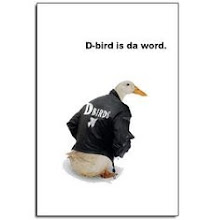Scene: a school library. Junior high school science class is in to research Michael Faraday, Mr Galvani and Mr Volta and Why They Are Important.
Teacher sits them on the library steps (inside) to tell them about the assignment. Reminds them that information may be sourced from computers and also from lovely things called, wait for it, books.
Class groans. Books? No THANK you.
Teacher Librarian wafts over to class. Invited to speak by teacher, teacher librarian points out that foolish researchers rely only on the internet. Wise ones use a variety of resources. And books can be faster than computers, believe it or not. Students are polite, but disbelieving.
Lesson slightly tweaked. Students get divided into two groups: each to get 18 min on the internet computers (where they all want to be), and 18 minutes using book and print resources (cue another groan, but not quite as definite).
Teacher takes the computer group, I take the book group. We rapidly find a range of book resources - encyclopedias (general and scientific), dictionaries of biography, books on famous scientists and discoveries. We talk about reading through once, then making notes the second time through, to suit the questions being asked.
Six minutes in, all the book kids have resources in front of them and are reading/making notes. Two of the computer kids have logged all the way in to the net and actually landed on something vaguely useful. Others are either still logging in or are wrestling with search terms (some just type in slabs of text from the assignment, as far as I can tell) or just go straight to Wikipedia. Teacher librarian points out to the computer kids, in possibly not such subtle terms as might have been used, but there you are, TLs are only human, that the book kids will be getting more free time after school, since they have made more progress during class time.
Ten minutes in, the book kids are humming along. And have been joined by most of the computer kids. For the rest of the lesson, although the computers are available, they will end up only being used by half the class or less. The rest use the books, which efficiently provide fast and focused information.
I think at one point I might have whooped in a smug fashion when a kid remarked that the books were much better to use for this assignment. Me, I'm no Luddite: but I don't think that class will groan again when they have to use books (I suggested to the teacher that maybe assignment parameters could include the requirement of a variety of print and digital resources. He was happy with how the lesson went, and that the students did have the value of books reinforced).
It's partly to do with the magnetic appeal of the keyboard and mouse, and the other options they offer for exploration when the teacher isn't watching the screen, and the delusion under which students labour, that the quick loading of the internet translates automatically to relevant information. No, it isn't magic, kiddies.
But sometimes they need a practical demonstration. Discovery learning.
Subscribe to:
Post Comments (Atom)






















1 comment:
Fantastic post, Ruth!
We recently saw a similar phenomenon with our Stage 3 students researching bushrangers. With very limited time to complete the task over several weeks, I'd set up lots of Internet links from a central online locale, and showed the students which links I thought might be more useful, but many happily scampered off to see what "real books" we also had on the topic.
The biggest problem we found was one link off a WebQuest page: the link was to previous student research from another school, and the accuracy of that information varied from student to student, even though it closely resembled sites uploaded by "professional" historians.
Similarly, the work we've now uploaded (to the Gold Quest blog we shared with Caddies Creek PS) - to give all the students the chance to share their findings online - is not necessarily 100% accurate.
The whole exercise has also reminded me how much work is involved for an editor to check historical facts in books and websites. I can't possibly go through every student author's sources and confirm every detail. To a certain extent, a "chief editor" and publisher must trust an author's research strategies (and literary licence to express facts in valid ways).
Post a Comment